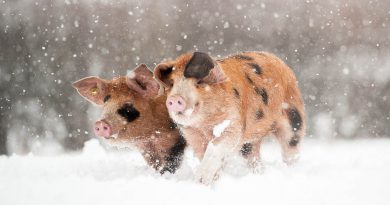Animal Advocates to Stage “UBC Monkey Death Row”
At 12:30, Thursday, January 27, the animal advocacy group, Stop UBC Animal Research will stage “UBC’s monkey death row” to protest the university’s brutal experiments on monkeys. The demonstration will include activists dressed as monkeys in bright orange jail suits and in chains caged in a mock jail cell. Stop UBC Animal Research has offered to buy UBC’s monkeys so the animals can be placed in a primate sanctuary.
WHEN: Thursday, January 27, 12:30 PM
WHERE: Vancouver Art Gallery, 750 Hornby Street (Robson Street side)
VISUALS: Animal advocates dressed as monkeys in bright orange jail suits and in chains caged in a mock jail cell. Signs that read, ”UBC Monkey Death Row,” “Stop UBC’s Monkey Business,” “Dead Monkey Walking.”
WHY: Every year, UBC conducts thousands of experiments on cats, mice, pigs, rabbits, monkeys, and other animals. After a month’s-long investigation, Stop UBC Animal Research has discovered that UBC has been:
Injecting toxins into monkeys’ brains to simulate “parkinsonism.” A UBC report obtained by Stop UBC Animal Research states that one researcher is using four to eight non-human primates to create in the animals “a new, progressively degenerative ‘model’ of Parkinson’s Disease.” According to the document, the UBC researcher’s experiment “uses rhesus monkeys which are receiving injections of proteasomal inhibitors into their brains. Head-holding devices have been surgically implanted into the monkeys’ brains, and protrude from the top of the monkeys’ heads, to be hooked up to frames when the researchers want to totally immobilize the animals presumably for injection of drugs and for scans at 3, 6, 9 and 12 months. The monkeys have been scanned after implantation but before injection, for baseline (or starting point) information. Some animals are to be killed at 6 months, some at 12 months.” According to an April 12, 2010 progress report published by TRIUMF, Canada’s National Laboratory for Particle and Nuclear Physics, UBC’s Parkinson’s experiment is active and ongoing. It is anticipated the monkeys will be killed by April, when federal funding for the project ends. Stop UBC Animal Research has offered to buy the monkeys so they can be placed in a primate sanctuary. Stop UBC Animal Research has also discovered UBC researchers have been:
Administering electroconvulsive shock to monkeys to induce seizures. Electrodes were applied to the heads of six rhesus macaques through which the shocks were given, apparently to cause seizures. For this the monkeys were only given a sedative and a drug to paralyze them. There was no mention of pain relief. The sedative would not cause complete loss of consciousness and inability to feel and, therefore, the concern is whether they were capable of feeling pain and terror. Because they were paralyzed, they would not have been able to show outward signs of suffering. The animals were also subjected to the unpleasant consequences of repeated doses of anesthesia. There is no mention of what happened to the monkeys.
Blinding monkeys in vision deprivation studies. Six rhesus macaques were deliberately blinded in one eye by cutting the optic nerve and allowed to live after this brutal mutilation. A second group of monkeys had one eye deliberately damaged by laser to cause a painful increase in pressure known as glaucoma. The animals were allowed to survive this surgery and kept alive, without pain medication, for weeks before being killed.
Injecting particles into the fetuses of pregnant monkeys. Three pregnant rhesus macaques were used, probably off-campus at a facility in the US. A tube was inserted into the monkeys’ abdomens and then into the fetuses where particles were injected into the kidneys to cause damage. A few weeks before the fetuses would have been born, the mothers were subjected to abdominal surgery, the fetuses removed and killed after which tissues were collected.
QUOTES: “British Columbians need to ask themselves if they are really willing to close their eyes to the torment and despair suffered by these animals, let alone to fund this type of research through their tax dollars and charitable donations,” said Anne Birthistle of Stop UBC Animal Research.
###

